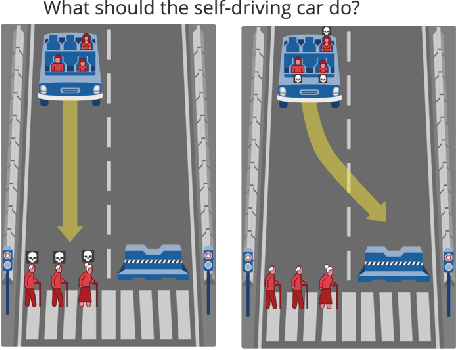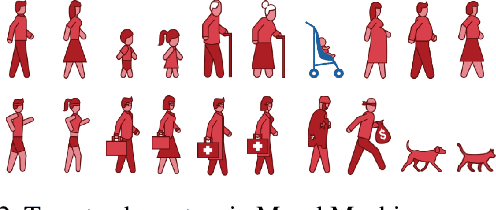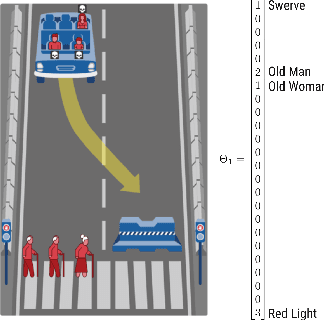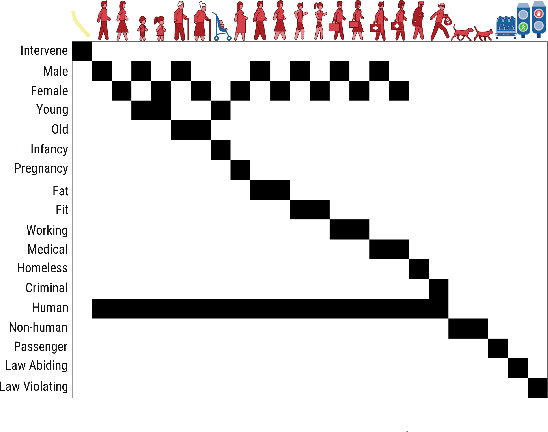A Computational Model of Commonsense Moral Decision Making
Paper and Code
Jan 12, 2018



We introduce a new computational model of moral decision making, drawing on a recent theory of commonsense moral learning via social dynamics. Our model describes moral dilemmas as a utility function that computes trade-offs in values over abstract moral dimensions, which provide interpretable parameter values when implemented in machine-led ethical decision-making. Moreover, characterizing the social structures of individuals and groups as a hierarchical Bayesian model, we show that a useful description of an individual's moral values - as well as a group's shared values - can be inferred from a limited amount of observed data. Finally, we apply and evaluate our approach to data from the Moral Machine, a web application that collects human judgments on moral dilemmas involving autonomous vehicles.
 Add to Chrome
Add to Chrome Add to Firefox
Add to Firefox Add to Edge
Add to Edge